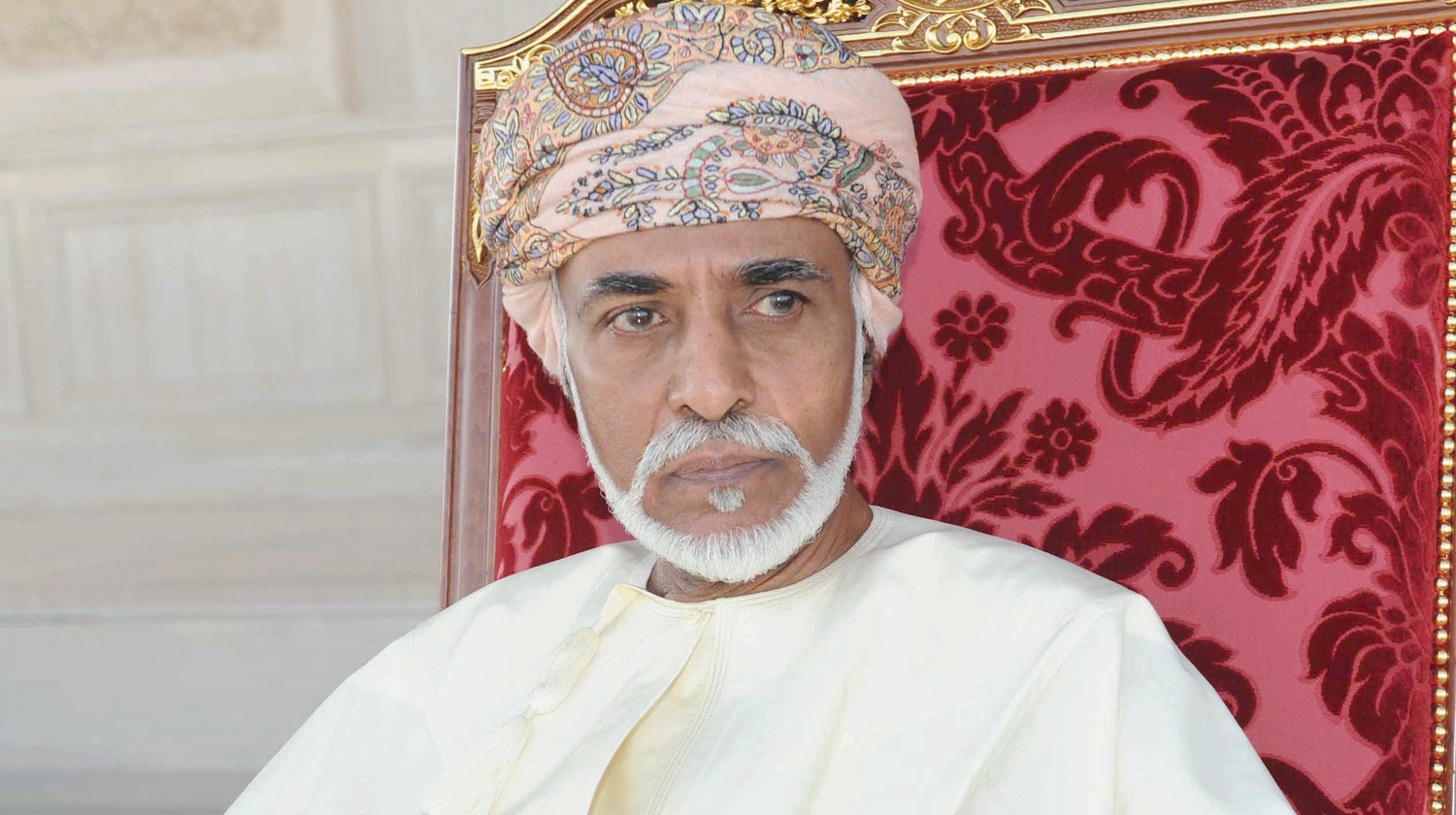


Linda Pappas Funsch [/caption]
Much has been written, particularly during this past week, about the legacy of His Majesty Sultan Qaboos, the beloved ruler of Oman who left this earth on January 10. The visionary leadership of Sultan Qaboos, his love of country, political acumen, and attention to detail have been the subject of countless books and articles. I am privileged to share my personal perspectives on this extraordinary figure whose earthly journey made our world a better place.
Throughout my career as a student of the Middle East, I have travelled, lived, and worked in countries from Morocco to Oman. During my first visit to the Sultanate in 1974, as a member of an international delegation invited to advise the Sultanate on programmes relating to health and education — the two pillars of His Majesty’s development plan — I was struck not only by the raw beauty of Oman’s landscape and by the friendliness of its people but, more importantly, by the unfamiliar impression that I was a witness to history, to something exciting that was unfolding in a country that was relatively unknown.
Omanis, including both those returning from lives abroad as well those who had never left that impoverished and isolated land, were inspired by the young Sultan and his bold promise to restore their once proud and powerful nation to greatness. He entreated his countrymen with a rallying cry that resonated throughout the land: every citizen — man and woman — had a duty to build, to be a stakeholder in the nation’s renaissance. He pledged to lead them in this journey. To most Omanis, Sultan Qaboos was a mystery, confined to virtual seclusion in Salalah, several years prior to his ascension to the throne on July 23, 1970. How could he succeed? To an outsider, particularly one coming from the urbane, somewhat jaded, atmosphere of pre-civil war Beirut, the contrasting sense of optimism and purpose in this remote corner of Arabia, inspired
by the charismatic Sultan Qaboos, was palpable.
And so, through five decades, the Sultan succeeded in uniting his people in common cause. His interpersonal skills, honed from the earliest years of his reign through public speeches, private meetings, and royal “meet and greet” tours, were legendary. The love and respect between ruler and ruled was reciprocal; not only were his people inspired by his words, but, at the same time, Sultan Qaboos, “the people’s Sultan,” took time to listen and to learn from the citizens to whom he devoted his life.
From the beginning, the Sultan’s speeches, proclamations, and initiatives revealed not only a remarkable degree of consistency, but also almost uncanny foresight. As he shepherded Oman into a modern, forward-looking state, building infrastructure, institutions, and a cohesive national identity, he articulated, clearly and repeatedly, the centrality of tradition and heritage, and the need to include women and the youth on the path to a dynamic modern, and culturally authentic, state.
Years before such subjects dominated the headlines — to the extent that they have become, today, recurrent themes in the mainstream media — Sultan Qaboos warned against the dangers of religious extremism, sectarianism, and terrorism, establishing, in the fractured Middle East a model of inclusion and relative harmony among its diverse population. The result is that, today, Oman is cited by international arbiters as a terrorism-free country — no small achievement in this turbulent and divisive part of the world.
As one who has studied and taught the history of the Middle East for decades, I cannot point to any world leader, either in the region or beyond, who better exemplified the Platonic ideal of “philosopher king” than Sultan Qaboos. More than a statesman, besides being an avid sports enthusiast, internationally-recognised environmentalist, ardent supporter of the botanical sciences and advocate for sustainability, the late, beloved Sultan was a keen patron of the arts. In interviews, he revealed his love of poetry and music, from both eastern and western traditions. I recall visiting a Christian place of worship in Salalah more than 15 years ago, a modest building which, surprisingly, housed a world-class organ — a gift from His Majesty, I was informed, who, as a man of culture and history, beauty and inclusion, understood the universal language and power of music.
In this context, the magnificent Royal Opera House Muscat, opened its doors to the world on October 12, 2011. Giacomo Puccini’s immortal opera, Turadot, was magnificent, with sets designed by the legendary producer-director, Franco Zeffirelli, and conducted by the internationally-renowned maestro, Placido Domingo. And while the performance was outstanding, the significance of the moment was magnified by the presence of its illustrious patron.
As the invited guests eagerly anticipated the arrival of the Sultan of Oman, an excited hush swept over the theatre, fragrant with the aromas of mahogany and frankincense. The air was electric as His Majesty Sultan Qaboos took his seat in the royal box, acknowledging the audience with a regal wave and a gentle smile. While the performance was incomparable, the symbolism of this moment in history was profound. Affirming Oman’s place in the world as a crossroads of cultures and as a venue for international dialogue, this debut was a milestone in the Omani renaissance. Thank you, Sultan Qaboos, for restoring Oman to the world’s stage. May you rest in peace.
(Linda Pappas Funsch writes from Frederick, Maryland, USA. She is a career specialist in Middle East and Islamic Studies and the author of Oman Reborn: Balancing Tradition and Modernization. She is the 2019 recipient of the Sultan Qaboos Cultural Center, Washington, DC, research fellowship for a study on the role of women in national development in Oman.)
Oman Observer is now on the WhatsApp channel. Click here



